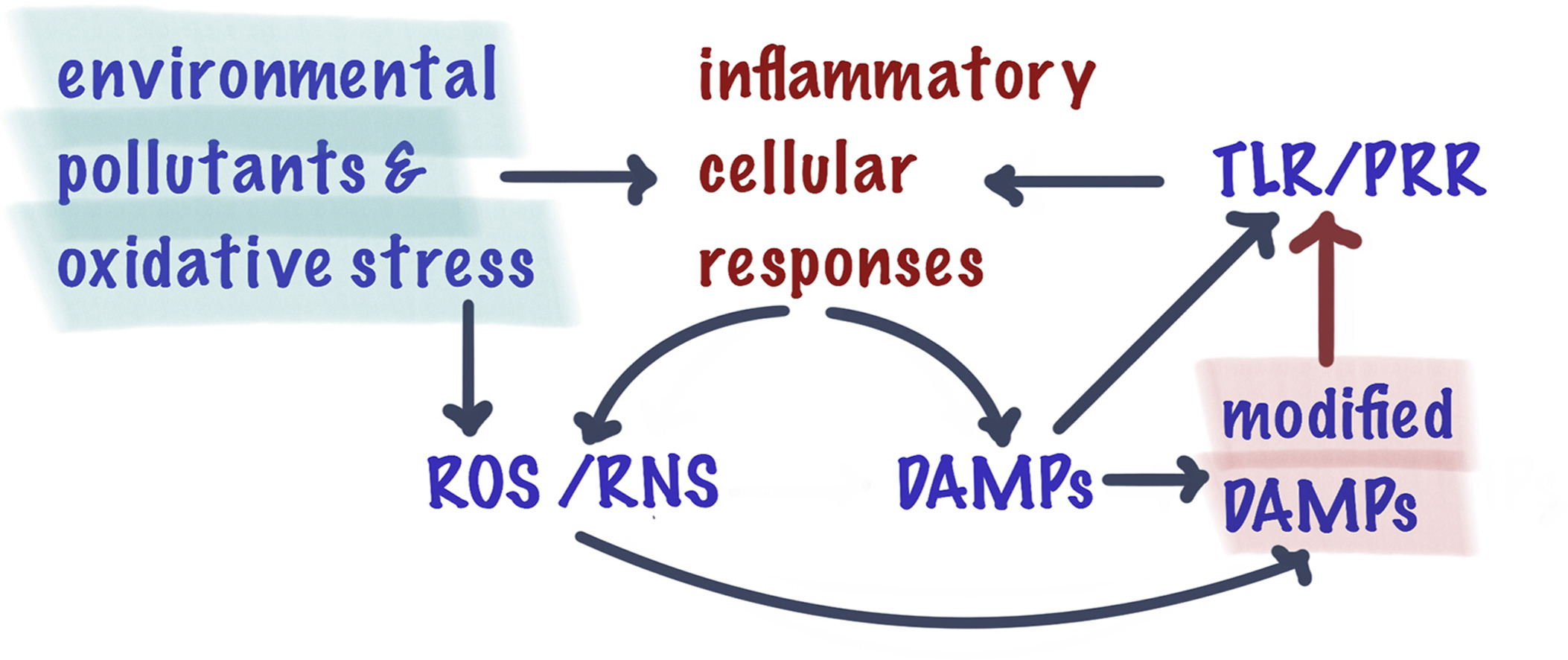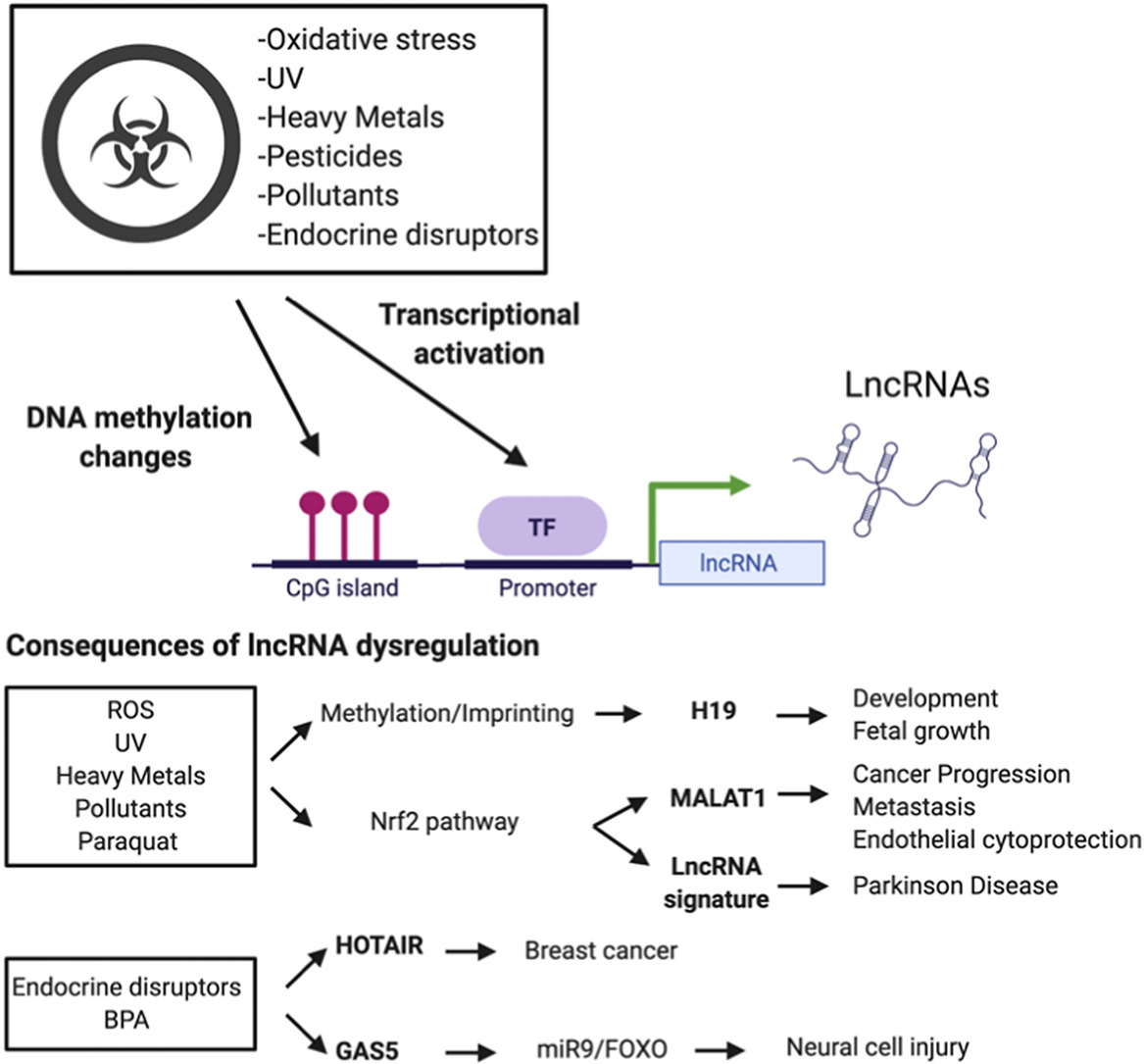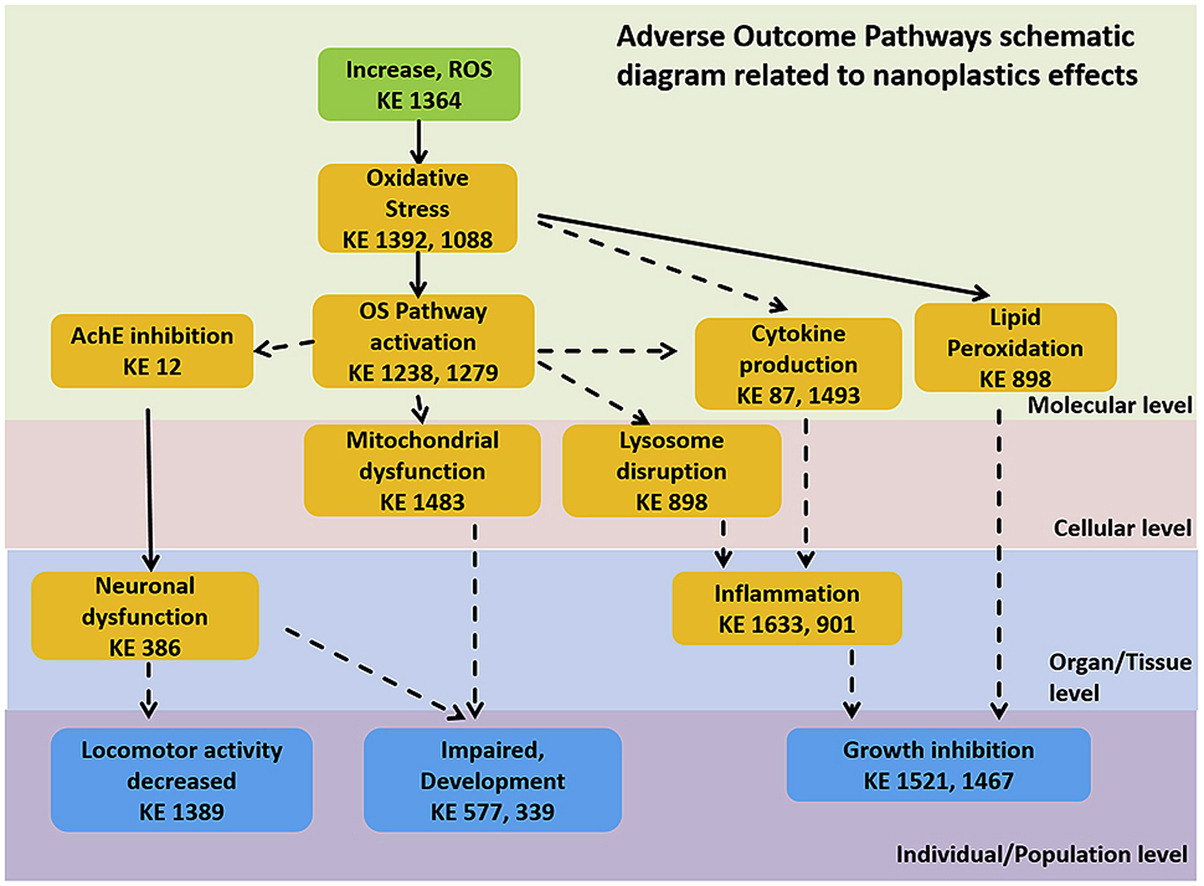Elsevier, Redox Biology, Volume 37, October 2020
Environmental pollutants like fine particulate matter can cause adverse health effects through oxidative stress and inflammation. Reactive oxygen and nitrogen species (ROS/RNS) such as peroxynitrite can chemically modify proteins, but the effects of such modifications on the immune system and human health are not well understood. In the course of inflammatory processes, the Toll-like receptor 4 (TLR4) can sense damage-associated molecular patterns (DAMPs).
Elsevier, Redox Biology, Volume 37, October 2020
Environmental risk factors, including physicochemical agents, noise and mental stress, have a considerable impact on human health. This environmental exposure may lead to epigenetic reprogramming, including changes in non-coding RNAs (ncRNAs) signatures, which can contribute to the pathophysiology state. Oxidative stress is one of the results of this environmental disturbance by modifying cellular processes such as apoptosis, signal transduction cascades, and DNA repair mechanisms.
Elsevier, Redox Biology, Volume 37, October 2020
Microplastics (MPs) and nanoplastics (NPs) have attracted considerable attention in the recent years as potential threats to the ecosystem and public health. This review summarizes current knowledge of pathological events triggered by micro- and nano-plastics (MP/NPs) with focus on oxidative damages at different levels of biological complexity (molecular, cellular, tissue, organ, individual and population).
Elsevier,
12th October 2020
In 2018, Dr. Alessio Adamiano, a researcher for the Italian National Research Council at the Institute of Science and Technology for Ceramic Materials, was awarded the second prize of €25,000. Contributing to SDGs 2, 13 and 14, his project, “Phos-Fate: Empowering fishing communities for climate change”, demonstrated how phosphorous can be recycled in a simple, scalable way by converting fish bones into products such as fertilizers. Two years later, we interviewed Dr. Adamiano about his experience at the Challenge, as well as the upcoming steps for his project empowering fishing communities for climate change.
Elsevier,
Clinical Breast Cancer, Volume 20, October 2020
This study aimed to analyze the psychological status in patients with breast cancer (BS) during the COVID-19 outbreak and observed high rates of anxiety, depression, distress, and insomnia. Special attention should be paid to the psychological status of patients with BC, especially those with poor general condition, treatment discontinuation, aggressive molecular subtypes, and metastatic BC.
Elsevier,
Comparative Biochemistry and Physiology Part - C: Toxicology and Pharmacology, Volume 235, September 2020
This article advances SDG # 15 and # 14 by looking at the potential adverse effects relatively high total mercury concentration has on the developing fetus of Steller sea lions.
Elsevier, Trends in Parasitology, Volume 36, September 2020
While modelling is an essential component for an understanding of the epidemiology of malaria, and for designing better control measures, it rarely considers the particular contexts encountered in emergency settings. By linking these situations with the transmission parameters our aim is to correct this bias and call for a better collaboration between relief actors.
Elsevier, Cell Reports Medicine, Volume 1, 22 September 2020
Recent guidance from the US Immigration and Customs Enforcement drastically altered the lives of international students in America, especially those who are matriculating. This commentary describes how international students still face uncertainty concerning their visa statuses and their place in American society.
Elsevier,
Geography and Sustainability, Volume 1, September 2020
Agriculture consumes huge amounts of water in China and is profoundly affected by climate change. This study projects the agricultural water use towards 2030 under the climate change mitigation target at the provincial level in China by linking a computable general equilibrium (CGE) model and a regression model.




